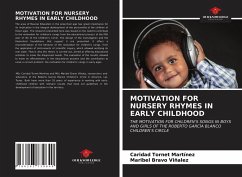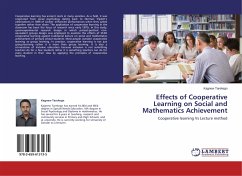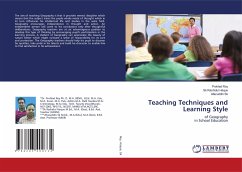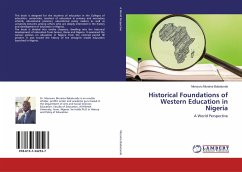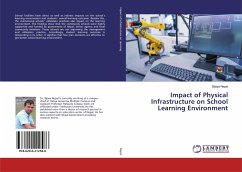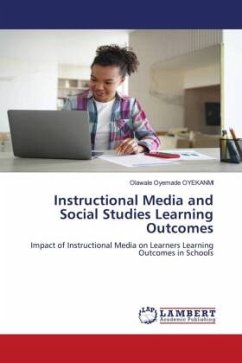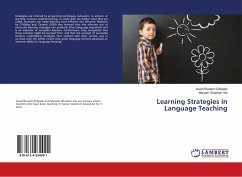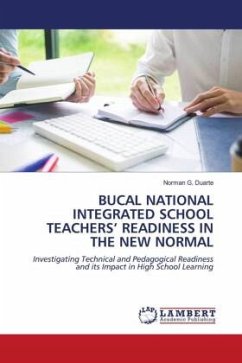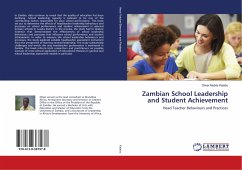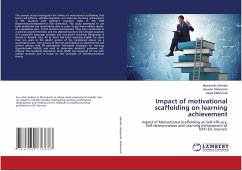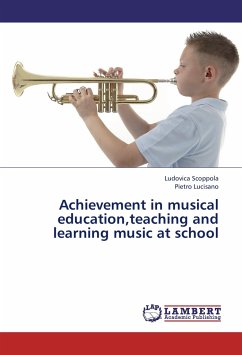
Achievement in musical education,teaching and learning music at school
Versandkostenfrei!
Versandfertig in 6-10 Tagen
32,99 €
inkl. MwSt.

PAYBACK Punkte
16 °P sammeln!
Music plays an important role in the lives of adolescents but when it becomes a school subject it seems to not attract interest and inspire enthusiasm in students. In order to collect data to understand and improve relationship between music and youth in the school, three research tools have been developed: a students questionnaire on musical habits, a standardized test for measuring knowledge and skills achieved and a teachers questionnaire to define the curriculum that is actually implemented in the classes. Finally, in order to analyze the efficacy of different teaching methodologies, the r...
Music plays an important role in the lives of adolescents but when it becomes a school subject it seems to not attract interest and inspire enthusiasm in students. In order to collect data to understand and improve relationship between music and youth in the school, three research tools have been developed: a students questionnaire on musical habits, a standardized test for measuring knowledge and skills achieved and a teachers questionnaire to define the curriculum that is actually implemented in the classes. Finally, in order to analyze the efficacy of different teaching methodologies, the response of the questionnaires were compared with the test results. The data shows that playing a musical instrument can help to develop interest and encourage mastery of skills. This book, therefore describe and analyze music education in Rome lower secondary school and should be useful to educators, also from different countries, to think over teaching music at school. The book presents thecalibration of a structured test designed to measure the results of training in musical education at the end of a scholastic cycle, the test undertakes to provide teachers with useful information.



